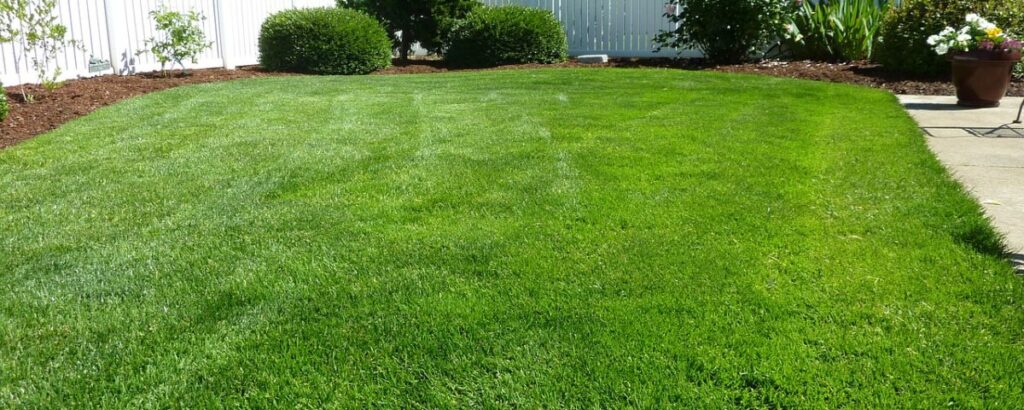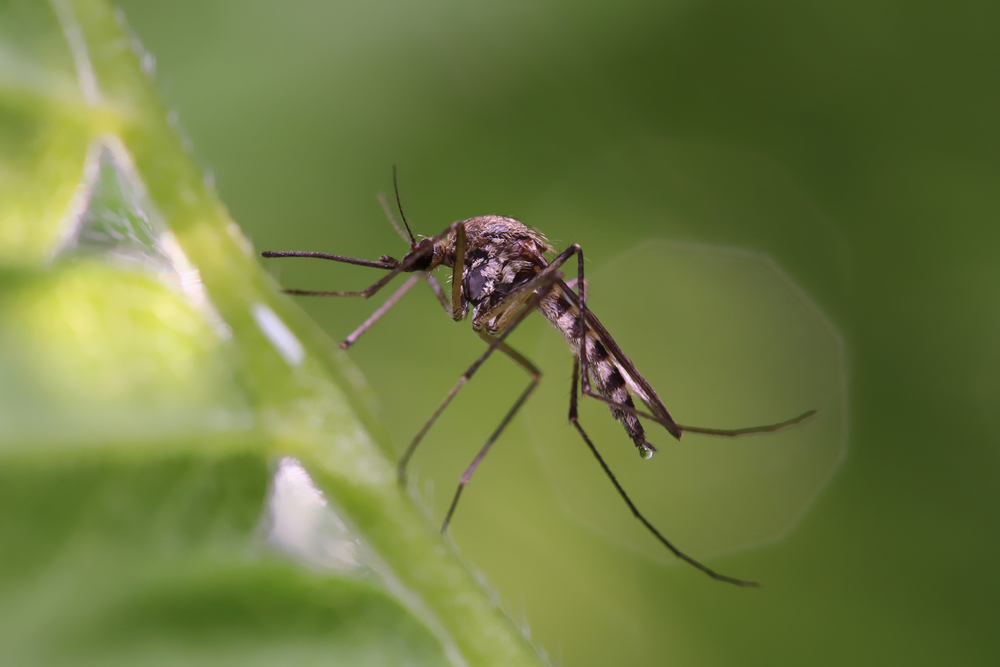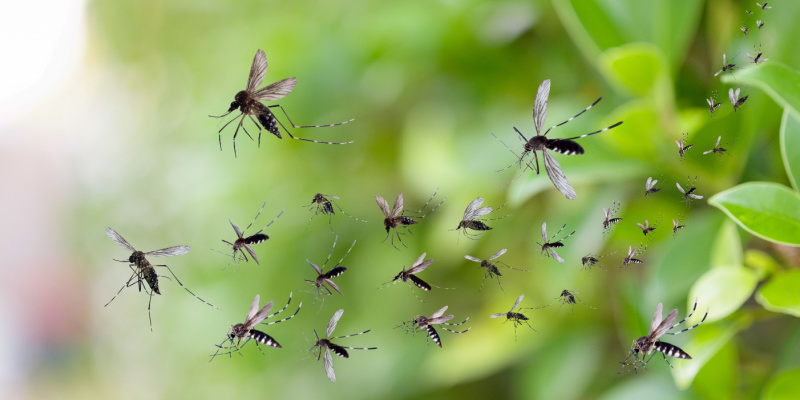Mosquitoes are not just a problem but also deliverers of illnesses like West Nile virus, Zika, and malaria. As these pests thrive in warm, moist environments, your yard can quickly become a breeding environment if not properly managed. This guide will walk you through everything you need to know about mosquito lawn treatment, helping you maintain a safe and comfortable outdoor space for your family and friends.

To effectively combat mosquitoes, it's essential to understand their behavior and lifecycle. Mosquitoes undergo four stages in their life cycle: egg, larva, pupa, and adult. The first three stages typically occur in standing water, making any soggy area in your lawn a potential mosquito nursery. Adult mosquitoes prefer to rest in cool, shaded areas, often hiding in tall grass, shrubs, and other vegetation during the day.
Mosquitoes spread their eggs in stagnant water, and even a tiny amount of water can be enough to support a large population. Common breeding sites include birdbaths, gutters, flower pots, and anywhere water can collect. Overgrown vegetation and dense shrubbery also provide ideal resting spots for adult mosquitoes, making these areas critical targets in your lawn treatment efforts.
Maintaining a well-manicured lawn is one of the most effective ways to reduce mosquito populations. Regular mowing, trimming of bushes, and clearing debris minimize the places mosquitoes can hide and breed. Additionally, proper lawn drainage prevents standing water, eliminating potential breeding sites. By combining good lawn care practices with targeted mosquito treatments, you can significantly reduce the presence of these pests in your yard.

There are several approaches to mosquito lawn treatment, ranging from chemical solutions to natural remedies. The choice between these methods often depends on personal preference, environmental concerns, and the severity of the mosquito problem in your area.
Chemical treatments are among the most popular and effective options for mosquito control. Insecticides target adult mosquitoes, killing them on contact or when they come into contact with treated surfaces. Typical insecticides include permethrin, bifenthrin, and pyrethroids, which are applied as sprays across the lawn and vegetation.
Larvicides, on the other hand, target mosquito larvae before they can develop into adults. These are usually applied to standing water and can effectively prevent mosquito populations from growing. Products containing methoprene or Bacillus thuringiensis israelensis (Bti) are commonly used as larvicides.
Repellents like DEET or picaridin can also be applied to lawns, vegetation, and outdoor furniture to keep mosquitoes at bay. While these repellents do not kill mosquitoes, they help reduce the likelihood of bites by creating a barrier that mosquitoes find unpleasant.
Natural and organic mosquito control methods are available for those who desire a more eco-friendly process. Essential oils, such as citronella, eucalyptus, and lavender, are known for their mosquito-repelling properties and can be used in sprays or candles around the yard. Additionally, garlic sprays, which can be made at home or purchased commercially, effectively repel mosquitoes without harming the environment.
Another natural option is introducing mosquito predators into your lawn. Fish like gambusia (mosquito fish) can be added to ponds or water features to feed on mosquito larvae. At the same time, birds and bats also control mosquito populations by feeding on adult mosquitoes.
DIY mosquito treatments can be effective for smaller yards or moderate mosquito problems. However, skilled pest control services may be required for more extensive areas or severe infestations. Professionals can assess your yard, identify breeding sites, and apply treatments more thoroughly and consistently than DIY methods. They also have access to more potent products unavailable to the general public, ensuring a higher level of control.
While professional services come at a cost, they often provide more comprehensive and long-lasting solutions, making them a worthwhile investment for homeowners struggling with persistent mosquito issues.

Mosquito control is not a one-time effort but requires consistent attention throughout the year. Different seasons present unique challenges and opportunities for mosquito prevention, and adjusting your lawn care routine accordingly can help keep these pests in check.
Spring is when mosquito activity begins to increase as the weather warms up. This is the ideal time to start preparing your lawn. Begin by inspecting your yard for areas where water can collect, such as clogged gutters, low spots, or unmaintained water features. Clear out any debris that could trap water and become a breeding site.
Spring is also the time to begin regular lawn mowing and trimming bushes. Keep grass and vegetation well-maintained to eliminate resting spots for adult mosquitoes. Applying a pre-emptive larvicide to standing water can help prevent mosquito populations from taking hold as temperatures rise.
Summer is peak mosquito season, with warm temperatures and occasional rain showers creating ideal conditions for breeding. During this time, it's crucial to maintain strict lawn care practices. Continue regularly mowing and ensure your lawn is well-drained to avoid water accumulation.
Consider applying a barrier insecticide around the perimeter of your yard and in areas where mosquitoes are most active. These treatments can provide several weeks of protection and should be reapplied as needed throughout the summer.
Additionally, set up mosquito traps around your yard to capture adult mosquitoes. These traps use attractants like carbon dioxide or heat to lure mosquitoes in, where they are then captured or killed. Traps can significantly reduce the adult mosquito population when used with other control methods.
As temperatures cool in the fall, mosquito activity will decrease, but it's still important to remain vigilant. Continue with regular lawn maintenance to prevent any late-season breeding. Clean out gutters, remove fallen leaves that could trap water, and store away any outdoor furniture or equipment that could collect rainwater.
Applying a final round of larvicide to any remaining water features will help ensure that mosquito larvae do not survive the winter. This can reduce the number of mosquitoes that emerge in the spring.
In many regions, mosquitoes become inactive during winter, but this doesn't mean you should ignore mosquito prevention entirely. Use this time to inspect and repair any lawn or water management system damage. Ensure your yard is ready for the next mosquito season by eliminating any potential breeding grounds that could develop during winter rains.
Consider planting mosquito-repelling plants like marigolds, catnip, or lemongrass around your yard during the winter. These plants add attractiveness to your landscape and help prevent mosquitoes when they become active again in the spring.
While regular treatments and seasonal maintenance are crucial, implementing long-term solutions can provide sustained protection against mosquitoes, reducing the need for frequent interventions.
Mosquito traps are an excellent long-term solution for controlling adult mosquito populations. To attract mosquitoes, these traps mimic human cues, such as carbon dioxide and warmth. Once drawn in, the mosquitoes are trapped and eventually die. Place these traps around your yard strategically, especially in shaded areas where mosquitoes are likely to rest.
Physical barriers, like mosquito nets or screens, can also protect your yard's specific areas, such as patios or outdoor seating areas. These barriers create a mosquito-free zone, letting you appreciate your outdoor areas without the endless problem of mosquito bites.
Incorporating mosquito-repelling plants into your garden is a realistic and aesthetically acceptable method to keep mosquitoes at bay. Plants like citronella, lavender, peppermint, and marigolds emit scents that are unpleasant to mosquitoes, helping to create a natural barrier.
Strategically place these plants around areas where you spend the most time, such as near patios, walkways, or entryways. These plants help repel mosquitoes and attract beneficial insects like bees and butterflies, enhancing the overall health and beauty of your garden.
Innovative technology has revolutionized mosquito control, offering automated systems that provide continuous protection with minimal effort. Automated misting systems can be installed around your yard to release insecticides or repellents regularly. These systems can be programmed to operate during peak mosquito activity times, such as early morning or evening, ensuring that your yard remains mosquito-free throughout the day.
Some advanced systems can be controlled via smartphone apps, allowing you to adjust settings or activate the system remotely. While these methods need an initial investment, they offer a high level of convenience and effectiveness, making them an excellent option for those who want a hands-off approach to mosquito control.
Following this comprehensive mosquito lawn treatment guide, you can enjoy a pest-free yard all year round. Regular maintenance, targeted treatments, and long-term solutions will keep mosquitoes at bay, letting you enjoy your outdoor area fully.
The most effective mosquito treatment depends on the severity of the infestation and personal preference. Chemical treatments like insecticides and larvicides are highly effective for immediate results, while natural methods such as essential oils and mosquito-repelling plants offer a more eco-friendly approach.
Natural treatments can be effective, mainly when used consistently and combined with other methods like lawn maintenance. However, chemical treatments generally offer faster and more powerful results, particularly in severe infestations.
The frequency of treatment depends on the method used and the mosquito activity in your area. During peak mosquito season, chemical treatments may need to be applied every few weeks, while natural methods should be maintained continuously. Regular monitoring and adjustments are essential to effective control.
Many mosquito treatments are safe for pets and children when used as directed. However, it's essential to follow the product's safety instructions carefully. Natural remedies tend to be safer, but even these should be used cautiously, especially around young children and pets.
If mosquitoes persist despite your efforts, consider reassessing your approach. Ensure that all potential breeding sites are eliminated, and consider combining multiple treatment methods for better results. If necessary, professional pest control services can provide a thorough assessment and more powerful treatment options.
Professional pest control that delivers exceptional value to your home or business.
© 2024 Pest Free Red Wing Company. All rights reserved.